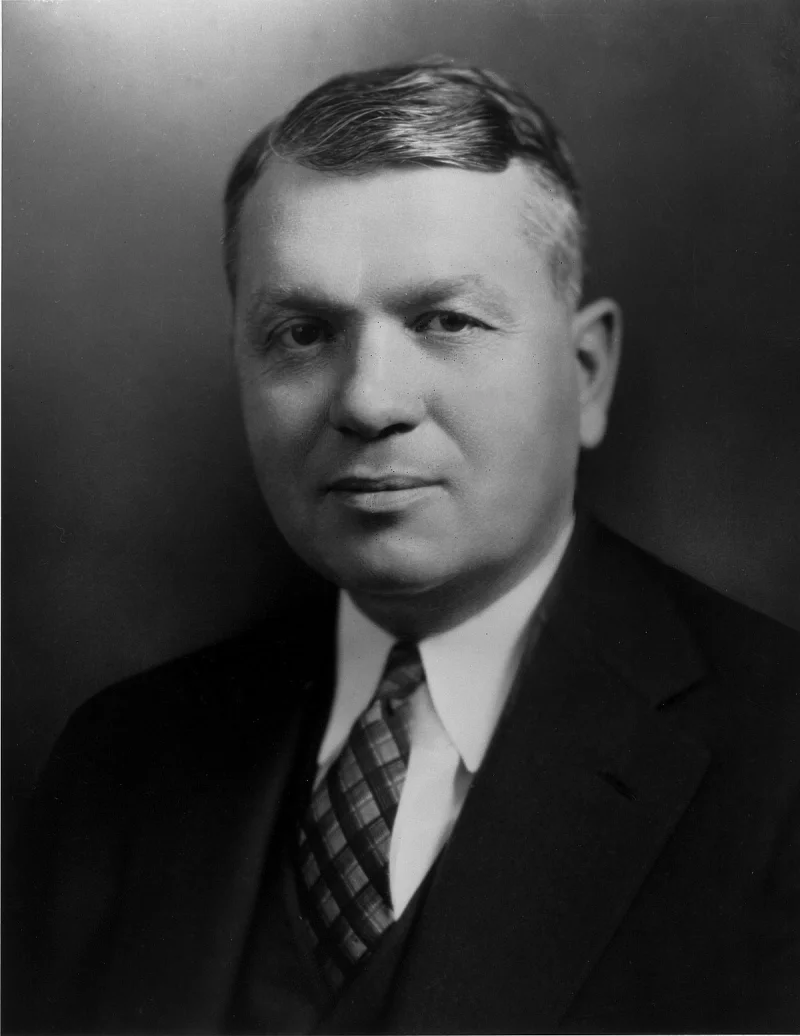Short Summary
Harold Urey was an American physical chemist known for his pioneering work in isotope separation and the discovery of deuterium, a heavy isotope of hydrogen. His groundbreaking research earned him the Nobel Prize in Chemistry in 1934. Urey's work had profound implications across various scientific fields, including chemistry, physics, and planetary science. He is also recognized for his contributions to the development of the atomic bomb during World War II and for his theories on the origin of life on Earth.
Early Life & Education
Harold Clayton Urey was born on April 29, 1893, in Walkerton, Indiana, to a family with a strong educational background. His father was a minister, and his mother was a teacher, which instilled in him a lifelong passion for education and science. Urey attended the University of Montana, where he earned a bachelor's degree in zoology in 1917. Despite his initial interest in biology, he shifted his focus to chemistry and completed his Ph.D. in 1923 at the University of California, Berkeley, where he studied under renowned chemist Gilbert N. Lewis. His education laid the foundation for his future scientific achievements.
Career Highlights
Harold Urey's career was marked by significant contributions to both theoretical and practical chemistry. After completing his Ph.D., he worked at Columbia University, where he discovered deuterium in 1931. This discovery not only earned him the Nobel Prize but also influenced the development of nuclear power and weaponry. During World War II, Urey was a part of the Manhattan Project, contributing to the development of the atomic bomb. Following the war, he joined the University of Chicago, where he shifted his focus to cosmochemistry and theories related to the origin of the solar system and life on Earth.
Major Achievements
- Discovery of Deuterium: Urey discovered deuterium, a heavy isotope of hydrogen, in 1931.
- Nobel Prize in Chemistry: He received the Nobel Prize in 1934 for his discovery of heavy hydrogen.
- Manhattan Project: Urey played a key role in the development of the atomic bomb during World War II.
- Cosmochemistry: He contributed significantly to the understanding of the origin of the solar system and life.
Famous Quotes
- "Life is not a miracle. It is a natural phenomenon, and can be expected to appear whenever there is a planet whose conditions duplicate those of the Earth."
- "The study of fossils has been, in my opinion, the most fruitful way to study the origin of life."
Interesting Facts
- Urey was a member of the National Academy of Sciences and the American Philosophical Society.
- He authored several books and papers on topics ranging from chemistry to the origin of life.
- Urey's work on isotopes also contributed to the field of paleoclimatology.
- His interest in cosmochemistry led to theories about the formation of the moon.
Legacy / Influence
Harold Urey's work had a lasting impact on various scientific disciplines. His discovery of deuterium advanced the field of nuclear chemistry and had implications for both energy production and weapons development. His contributions to cosmochemistry and theories on the origin of life have continued to influence research in planetary science and astrobiology, making him an enduring figure in the scientific community.
FAQ
Q: Why is Harold Urey famous?
A: He is famous for discovering deuterium and his significant contributions to chemistry and cosmochemistry.
Q: What did Harold Urey win the Nobel Prize for?
A: He won the Nobel Prize in Chemistry in 1934 for the discovery of heavy hydrogen, or deuterium.
Q: What was Harold Urey's role in the Manhattan Project?
A: He contributed to the development of the atomic bomb by working on isotope separation techniques.













